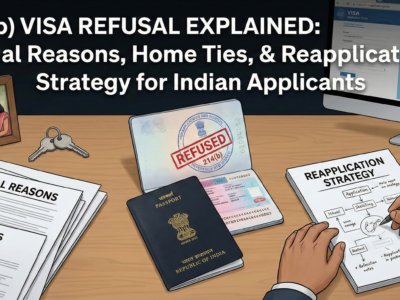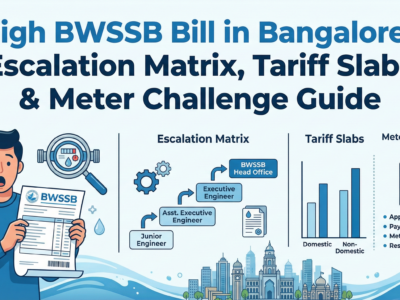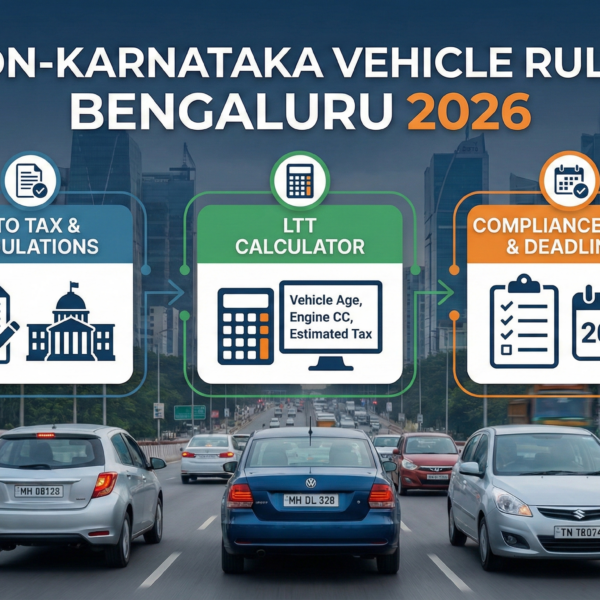Dating App Restaurant Scams in India: Legal Guide & FIR Template
What starts with a promising match on a dating app can end in a nightmare of coercion and financial loss. The “Dine & Deceive” restaurant scam is a growing threat across India, leaving victims feeling ashamed and powerless. But you are not alone, and you are not without options. This comprehensive legal guide from eVakil.com is designed to empower you. We’ll walk you through the anatomy of the scam, your powerful legal rights under Indian law, and provide the practical tools—including a step-by-step flowchart and a ready-to-use police FIR template—to fight back, reclaim your money, and hold every perpetrator accountable.
The "Dine & Deceive" Scheme
A comprehensive legal guide for victims of sophisticated dating app restaurant scams in India. Understand your rights and learn how to fight back against this predatory form of organized crime.
Anatomy of the Scam
To effectively combat this fraud, it's essential to understand its mechanics. The "Dine & Deceive" scheme is not an opportunistic act but a premeditated and systematic operation with clearly defined roles and stages.
A Multi-layered Deception
The scam is a four-stage process designed to exploit trust and create a high-pressure situation for financial extortion.
- ✓ The Lure: Fake profiles on dating apps build trust and arrange a meeting at a specific, complicit venue.
- ✓ The Venue: The restaurant is an active partner, using fraudulent billing and inflated prices.
- ✓ The Execution: The date disappears, leaving the victim with an exorbitant bill and facing threats from staff.
- ✓ The Aftermath: The scammer "ghosts" the victim, relying on shame and embarrassment to prevent reporting.
The Scammer's Playbook: A Closer Look at the Tactics
Digital Deception
- Rapid Escalation: Scammers push to meet within 1-2 days to prevent you from detecting red flags.
- Venue Insistence: They will refuse any alternative venue suggestions, a critical indicator of the scam.
- Scripted Dialogue: Conversations are often superficial and focused solely on arranging the meeting.
- AI & Fake Personas: Profiles often use stolen or AI-generated images to create a convincing but non-existent persona.
Commercial Collusion
- Fraudulent Billing: Bills include fabricated items, grossly inflated prices, and off-menu orders to maximize the total.
- Profit Sharing: The establishment and the lurer share the extorted money, proving a pre-planned conspiracy.
- Coercive Staff: Bouncers and managers are part of the act, trained to intimidate victims into paying.
- Fake Bills: Some operations use portable printers to create entirely fake bills, leaving no official record of the transaction.
The Legal Arsenal
A victim has a formidable array of legal provisions at their disposal. The act is not a single offense but a composite of several serious crimes under the Indian Penal Code, IT Act, and Consumer Protection Act.
Interactive Legal Options Explorer
Filter by law to understand the specific charges, key elements to prove, and potential punishments.
| Governing Law | Section | Offence | Essential Elements to Establish |
|---|---|---|---|
| Indian Penal Code, 1860 | Sec 420 | Cheating | Deception, Fraudulent Inducement, Delivery of Property (Money). |
| Indian Penal Code, 1860 | Sec 120B | Criminal Conspiracy | Agreement between 2+ persons to commit an illegal act. |
| Indian Penal Code, 1860 | Sec 383 | Extortion | Intentionally putting a person in fear of injury to induce payment. |
| IT Act, 2000 | Sec 66D | Cheating by Personation | Cheating by personation using a computer or communication device. |
| Consumer Protection Act, 2019 | Sec 2(47) | Unfair Trade Practice | Adopting an unfair or deceptive practice to promote a service. |
Consumer Rights & Commercial Malpractice
Parallel to criminal proceedings, you have powerful remedies under the Consumer Protection Act, 2019. This approach targets the restaurant as a service provider engaged in gross malpractice, offering a direct path to financial compensation.
Unfair & Restrictive Trade Practices
The restaurant's actions violate key provisions of the Consumer Protection Act.
- Unfair Trade Practice (Sec 2(47)): The act of luring a customer under false pretenses and presenting a fraudulent, inflated bill is a textbook example of a deceptive practice used to promote a service.
- Restrictive Trade Practice (Sec 2(41)): Forcing a victim to pay a fabricated bill as a condition for their safe exit is a coercive practice that imposes unjustified costs.
The Service Charge Precedent
A landmark Delhi High Court ruling from March 2025 strengthens your case. The court declared mandatory service charges an "unfair trade practice," establishing a powerful legal precedent against any non-transparent, coercive, and mandatory charges imposed by restaurants.
This ruling affirms that restaurants cannot impose hidden fees and must be transparent, making it highly likely a consumer commission would rule in your favor.
A Strategic Advantage
Filing a consumer complaint can also serve as a strategic evidence-gathering tool. In consumer commission proceedings, the restaurant is legally obligated to respond. Their official records, billing software data, and justifications for charges can be obtained and then used as powerful corroborating evidence in your parallel criminal investigation.
A Practical Guide to Seeking Justice
For a victim in the immediate aftermath, knowing the correct procedural steps is critical. A swift, methodical response can preserve evidence and set the foundation for successful legal action.
Immediate Actions (At the Scene)
- Stay Calm: Prioritize your personal safety above all.
- Refuse to Pay: Clearly state you dispute the fraudulent charges.
- Call the Police (Dial 100): Their presence deters threats and creates an official record.
- Pay Under Protest: If coerced, use a digital method (Card/UPI) to create a trail.
- Gather Evidence: If safe, photograph the bill and menu.
Within 24 Hours
- Preserve Digital Evidence: Screenshot the dating profile, chats, and call logs.
- Write a Detailed Narrative: Document the entire sequence of events.
- File Online Cyber Crime Complaint: Report on www.cybercrime.gov.in.
- File a Formal FIR: Visit the local police station with your online complaint number.
Long-Term Action
- File a Consumer Complaint: Seek a refund and compensation via the eDaakhil portal.
- Follow Up: Regularly check the status of your police and cyber cell investigations.
- Consult a Lawyer: Consider seeking professional legal advice to navigate the process.
Navigating Law Enforcement
A two-pronged approach involving both local police and the cyber crime cell is the most effective strategy. Each has a distinct and complementary role in the investigation.
Local Police Station
They have jurisdiction over the physical crime scene (the restaurant). Their role is to investigate the extortion, cheating, and conspiracy that occurred on their patch. They will investigate the staff, management, and physical evidence.
Cyber Crime Cell
These are specialized units that investigate the digital origins of the crime. They have the technical expertise and nationwide jurisdiction to trace fake profiles, IP addresses, and phone numbers, which is crucial for dismantling the entire network.
How to File an Online Complaint
Use the National Cybercrime Reporting Portal (www.cybercrime.gov.in). The process involves registering as a user, selecting "Report Other Cybercrime," filling in the incident details, providing a comprehensive narrative, and—most importantly—uploading all your digital evidence (screenshots of profiles, chats, bills, and payment receipts). Save the reference number provided upon submission.
FIR Template: A Victim's First Report
This template can be adapted to draft a comprehensive First Information Report (FIR). It is crucial to be as detailed and accurate as possible. Present this written complaint at the local police station.
To,
The Officer-in-Charge,
[Name of Police Station],
[City/District], [State].
Subject: First Information Report (FIR) for cognizable offences of Cheating, Criminal Conspiracy, Extortion, and Cybercrime under Sections 420, 120B, 383 of the Indian Penal Code, 1860, and Section 66D of the Information Technology Act, 2000.
Respected Sir/Madam,
I, [Your Full Name], son/daughter of [Your Father's Name], resident of [Your Full Address], wish to report the commission of the following cognizable offences.
1. Details of the Complainant:
- Name: [Your Full Name]
- Address: [Your Full Address]
- Contact Number: [Your Phone Number]
- Email: [Your Email Address]
2. Details of the Accused Parties:
- Accused No. 1: An unknown individual operating a fraudulent profile on the [Name of Dating App] dating application under the name "[Scammer's Profile Name]". (Mobile number used: [Scammer's Phone Number, if known]).
- Accused No. 2: The management and owners of [Name of Restaurant/Bar], located at [Full Address of Restaurant].
- Accused No. 3: The manager, bouncers, and staff of [Name of Restaurant/Bar] present on the date of the incident.
3. Date, Time, and Place of Offence:
- Date: [Date of the incident]
- Time: Approximately [Start Time] to [End Time]
- Place: [Name of Restaurant/Bar], [Full Address of Restaurant]
4. Narrative of the Incident:
(Provide a detailed, chronological account. Use the following points as a guide.)
- On [Date], I matched with Accused No. 1 on the dating app [Name of Dating App].
- We communicated via the app and later on [WhatsApp/Phone Call]. Accused No. 1 insisted we meet at Accused No. 2's establishment.
- On [Date of incident] at [Time], I met Accused No. 1 at the said restaurant.
- Accused No. 1 ordered numerous expensive items, including [mention specific items like hookah, specific liquors, etc.], without consulting me on the price.
- At approximately [Time], Accused No. 1 made an excuse (e.g., receiving a phone call) and left the table, never to return.
- The staff presented me with a fraudulent and exorbitant bill of ₹[Amount of Bill]. The bill contained fabricated items and inflated prices.
- When I disputed the bill, the manager and bouncers (Accused No. 3) threatened me with physical harm and other serious consequences, stating [mention specific threats made].
- Under duress and in fear for my safety, I was coerced into paying the amount of ₹[Amount Paid] via [Credit Card/UPI/etc.] to [UPI ID or Account Name, if known].
- After the incident, Accused No. 1 deleted their dating profile and became unreachable.
5. Prayer:
The actions of the accused constitute a pre-planned criminal conspiracy to cheat and extort money from me. I request you to register this FIR under the relevant sections of the IPC and IT Act and take immediate and strict legal action against all the accused parties. I have also filed a complaint on the National Cybercrime Reporting Portal, with reference number [Your Cybercrime Complaint Number].
I am attaching copies of the following evidence for your investigation:
1. Screenshots of the dating profile and chat history.
2. Photograph of the fraudulent bill.
3. Proof of digital payment (bank statement/UPI screenshot).
4. A copy of my cybercrime complaint.
Yours faithfully,
[Your Signature]
([Your Full Name])
Building Your Case: The Evidentiary Foundation
A successful legal outcome depends entirely on the quality of evidence. You must act quickly to preserve all information that substantiates your claim, from digital footprints to physical proof.
Preserving Digital Footprints
- Screenshot Everything: Before it's deleted, capture the scammer's full dating profile, all photos, and the entire chat history. This proves the initial lure.
- Save Communications: Back up any voice notes, call logs, or emails exchanged.
- Document the Financial Trail: Preserve bank/credit card statements or UPI transaction histories. This is irrefutable proof of your financial loss.
Documenting the Incident
- The Fraudulent Bill: The physical bill is primary evidence. Keep it safe and analyze it for irregularities like fake items or inflated prices.
- Witness Information: If it was safe to do so, try to recall any other patrons who witnessed the confrontation. Their testimony can be invaluable.
- Write a Narrative: As soon as possible, write a detailed, chronological account of the event to ensure no details are forgotten.
Overcoming Prosecutorial Challenges
Building a strong case requires anticipating and addressing common legal hurdles.
Anonymity & Jurisdiction
Scammers use fake profiles and burner numbers. This is why engaging the cyber cell is vital. They have the tools and nationwide jurisdiction to pierce this anonymity.
Victim Reluctance & Shame
Perpetrators rely on victims being too embarrassed to report the crime. It's crucial to understand you are the target of an organized criminal operation. Reporting is an act of empowerment, not a source of shame.
Evidence Admissibility
For digital evidence to be admissible in court, its authenticity must be proven. Preserve screenshots and data in their original format and maintain a clear record of how they were collected to meet legal standards, such as those under the Bharatiya Sakshya Adhiniyam, 2023.
Systemic Issues & Platform Responsibility
While individual action is vital, this scam highlights broader systemic issues, including the role of social stigma and the responsibility of digital platforms in ensuring user safety.
The Weaponization of Shame
The business model of these scams is built on the calculated weaponization of social stigma. Perpetrators know that many victims will be too embarrassed to report the crime, fearing judgment from family or law enforcement. This under-reporting creates a climate of impunity, allowing criminal networks to operate with a reduced risk of being held accountable.
The Role of Dating Platforms
Dating apps have a responsibility to police their ecosystems more effectively. While they provide a valuable service, they must also invest in more stringent user verification processes, proactively identify and remove fraudulent profiles, and cooperate more swiftly with law enforcement agencies when crimes are reported. Systemic change requires greater accountability from these platforms.
Victim's Legal Action Flowchart
This flowchart provides a clear, step-by-step visual guide to the actions a victim should take after encountering a "Dine & Deceive" scam.
- Prioritize safety.
- Refuse to pay disputed charges.
- Call Police (Dial 100).
- If coerced, pay digitally (under protest).
- Photograph bill and menu.
- Screenshot all digital evidence (profile, chats).
- Write a detailed narrative of the event.
- File complaint on www.cybercrime.gov.in.
- Visit local police station to file a formal FIR.
Criminal Proceedings
- Follow up on FIR with local police.
- Track Cyber Cell investigation.
- Provide all evidence to authorities.
- Consult with a criminal lawyer.
Consumer Complaint
- File complaint on eDaakhil portal.
- Seek refund & compensation.
- Use proceedings to gather evidence.
- Attend consumer commission hearings.
Proactive Defence & Prevention
While legal recourse is available, the most effective strategy is prevention. By adopting a cautious approach to online dating, you can significantly reduce your risk.
Vetting Matches
- Perform a reverse image search on profile pictures.
- Insist on a brief video call before meeting. Scammers will always make excuses to avoid this.
- Be wary of profiles that seem "too good to be true."
- Check for a minimal or non-existent digital footprint online.
Controlling the Date
- Always choose the venue yourself. This is the most critical step. Refusal is a major red flag.
- Meet in a familiar, public, and well-lit place.
- Arrange your own transportation to and from the date.
Situational Awareness
- Watch for scripted conversation or disinterest.
- Be alert to unusual or expensive ordering behavior without discussion.
- Trust your instincts. If it feels wrong, make an excuse and leave immediately.
Empowerment Through Action
The "Dine & Deceive" scam is a calculated crime, but victims are not powerless. By understanding your legal rights and the procedures for seeking justice, you can transform helplessness into decisive action. A combined strategy of criminal, consumer, and cyber law is your most potent weapon. Reporting these crimes is not a source of shame; it is an act of empowerment that holds criminals accountable and makes our communities safer.









